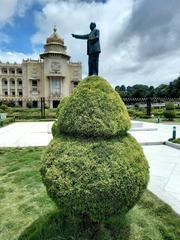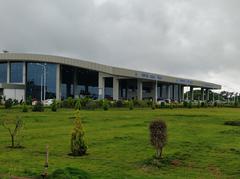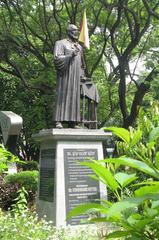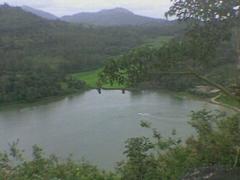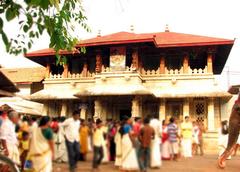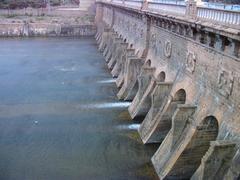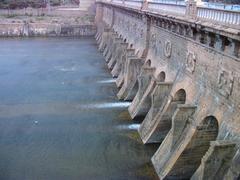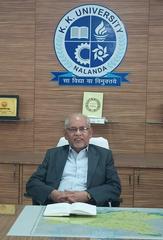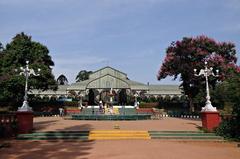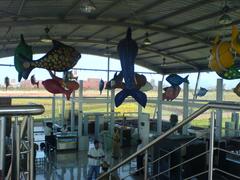Hulimavu Cave Temple: Visiting Hours, Tickets, and Guide to Karnataka’s Historic Rock-Cut Sanctuary
Date: 04/07/2025
Introduction
Situated in the peaceful Hulimavu neighborhood of Bangalore, Karnataka, the Hulimavu Cave Temple—also known as Shri Gavi Cave Temple or Ramalingeshwara Cave Temple—is an extraordinary synthesis of spiritual devotion, ancient rock-cut architecture, and regional heritage. With origins believed to stretch back over 2,000 years, and possibly even older according to local legend, this temple stands as a living testament to the enduring cultural and religious traditions of South India (templeinkarnataka.com; TravelTriangle).
Carved directly from granite, the temple features natural cave formations, a minimalist design, and a sanctum housing the Shiva Lingam, alongside idols of Devi and Lord Ganesha. The association with Saint Ramanand Swamiji, whose samadhi is enshrined within, further deepens its spiritual resonance (Historified).
The temple welcomes visitors daily, offering free entry and the opportunity to participate in religious events, including the celebrated Maha Shivaratri and the remarkable Makar Sankranti festival, when a unique solar alignment illuminates the Shiva Lingam—a phenomenon that highlights the temple’s astronomical significance (Thrillophilia; Sanskriti Magazine). Accessible via public transport and close to notable sites such as Bannerghatta National Park and Begur Fort, the temple is a must-visit for spiritual seekers and heritage enthusiasts alike.
Table of Contents
- Introduction
- Historical Origins and Evolution
- Architectural Features and Conservation
- Religious and Cultural Significance
- Administration and Management
- Visitor Information: Hours, Tickets & Tips
- Community Involvement and Legacy
- Conservation Challenges
- Visual and Interactive Resources
- Frequently Asked Questions (FAQ)
- Conclusion
- Sources
Historical Origins and Evolution
The Hulimavu Cave Temple is steeped in antiquity; while its precise age is debated, it is widely believed to be over 2,000 years old. Local traditions claim it could be as old as 4,000–5,000 years, underscoring its deep roots (templeinkarnataka.com). Once a meditation retreat for ancient sages, the temple gained renown with the presence of Saint Ramanand Swamiji, whose samadhi remains a focal point of reverence.
The temple’s formal structure, as it exists today, was shaped under the guidance of Mariappa Swamiji, who discovered the saint meditating within the cave. This spiritual legacy has attracted generations of devotees seeking blessings and inspiration.
Architectural Features and Conservation
Exemplifying South Indian rock-cut architecture, the temple’s sanctum is hewn from a granite outcrop, with natural cave contours forming a serene, spiritual environment. The minimalist interior, free from ornate embellishment, amplifies the sanctity of the space. The sanctum houses a Shiva Lingam, alongside idols of Devi and Lord Ganesha, and other shrines for Rama, Sita, Lakshmana, and Hanuman.
The temple’s preservation is managed by minimal interventions, focusing on cleaning, structural reinforcement, and careful maintenance to retain its authentic ancient appearance.
Religious and Cultural Significance
The Hulimavu Cave Temple is a center for Shaivite worship and meditation, honoring the legacy of Sri Ramanand Swamiji. Its inclusive approach, featuring shrines to multiple deities, makes it spiritually significant for families and individual devotees.
Major festivals like Maha Shivaratri and Makar Sankranti see vibrant rituals and large gatherings. The annual solar alignment during Makar Sankranti, when sunlight illuminates the Shiva Lingam, is a highlight for both devotees and astronomy enthusiasts (Sanskriti Magazine).
Administration and Management
A dedicated temple trust, with support from the Sri Sri Bala Gangadaraswami Mutt, manages the temple’s daily operations, maintenance, and religious activities. Donations are used transparently for upkeep, charitable endeavors, and event organization (templeinkarnataka.com).
Visitor Information: Hours, Tickets & Tips
Visiting Hours
- Regular Hours: 6:00 AM to 12:30 PM daily
- Festival Days: Extended hours, especially during Maha Shivaratri and Makar Sankranti
- Note: Always verify current timings via the temple’s official channels before visiting.
Entry & Donations
- Entry: Free of charge; no tickets required.
- Donations: Welcomed and support temple upkeep.
Directions
- Location: Cave Temple Road, Pai Layout, Hulimavu, Bengaluru, Karnataka 560076, near BGS National Public School.
- Accessibility: Reachable by BMTC buses, auto-rickshaws, taxis, and ride-sharing apps. Ample parking is available.
Facilities & Accessibility
- Parking: Available for cars and two-wheelers.
- Accessibility: The cave entrance requires a short walk; terrain may be challenging for visitors with mobility issues.
- Amenities: Basic facilities, including drinking water and rest areas, are provided.
Nearby Attractions
- Bannerghatta National Park: Wildlife sanctuary and butterfly park (Bannerghatta National Park)
- Begur Fort: Historical fort ruins (Begur Fort)
- Arekere Lake: Urban retreat for birdwatching
- Sri Meenakshi Sundareshwara Temple: Noted for Dravidian architecture
Best Time to Visit
- Weekdays: For quieter, meditative visits.
- Festivals: For vibrant religious and cultural experiences.
Visitor Guidelines
- Dress modestly; cover shoulders and knees.
- Remove shoes before entering the temple premises.
- Photography inside the sanctum may be restricted—ask for permission.
- Observe silence and respect the atmosphere of meditation.
Community Involvement and Legacy
The temple benefits from strong community involvement, with local volunteers supporting maintenance and festivals. Regular workshops, spiritual discourses, and meditation sessions reinforce its role as a living center of heritage and learning.
Conservation Challenges
Ongoing conservation efforts address natural erosion and the impact of increasing visitor numbers. The temple is protected under the Karnataka Ancient and Historical Monuments Act of 1961, with regular structural assessments and awareness campaigns promoting sustainable tourism (Thrillophilia).
Visual and Interactive Resources
High-quality images, virtual tours, and maps are available on official and travel websites. Visuals of the Makar Sankranti solar alignment, the cave’s sanctum, and intricate carvings enhance visitor understanding and anticipation.
Frequently Asked Questions (FAQ)
Q: What are the Hulimavu Cave Temple’s visiting hours?
A: 6:00 AM to 12:30 PM daily, with extended hours during festivals.
Q: Is there an entry fee?
A: No, entry is free; donations are welcome.
Q: Are guided tours offered?
A: No official tours, but staff are available for information. Private guides may be arranged.
Q: Is the temple accessible for those with mobility issues?
A: Some uneven terrain exists; assistance may be needed.
Q: Can I take photographs inside the temple?
A: Photography may be restricted in certain areas; ask for permission.
Q: What are some nearby attractions?
A: Bannerghatta National Park, Begur Fort, Arekere Lake, Sri Meenakshi Sundareshwara Temple.
Conclusion
The Hulimavu Cave Temple is a rare blend of history, spirituality, and architectural wonder. With its ancient rock-cut sanctum, association with revered saints, and vibrant festivals—especially the awe-inspiring solar alignment during Makar Sankranti—it stands as a cultural treasure in Bangalore. Free access, well-maintained facilities, and enriching nearby attractions make it an ideal destination for devotees, heritage lovers, and curious travelers alike.
For a rewarding visit, respect the temple’s customs, check current timings, and explore the surrounding cultural and natural sites. Stay updated and enhance your experience by downloading the Audiala app, following our social media channels, and exploring our related guides.

